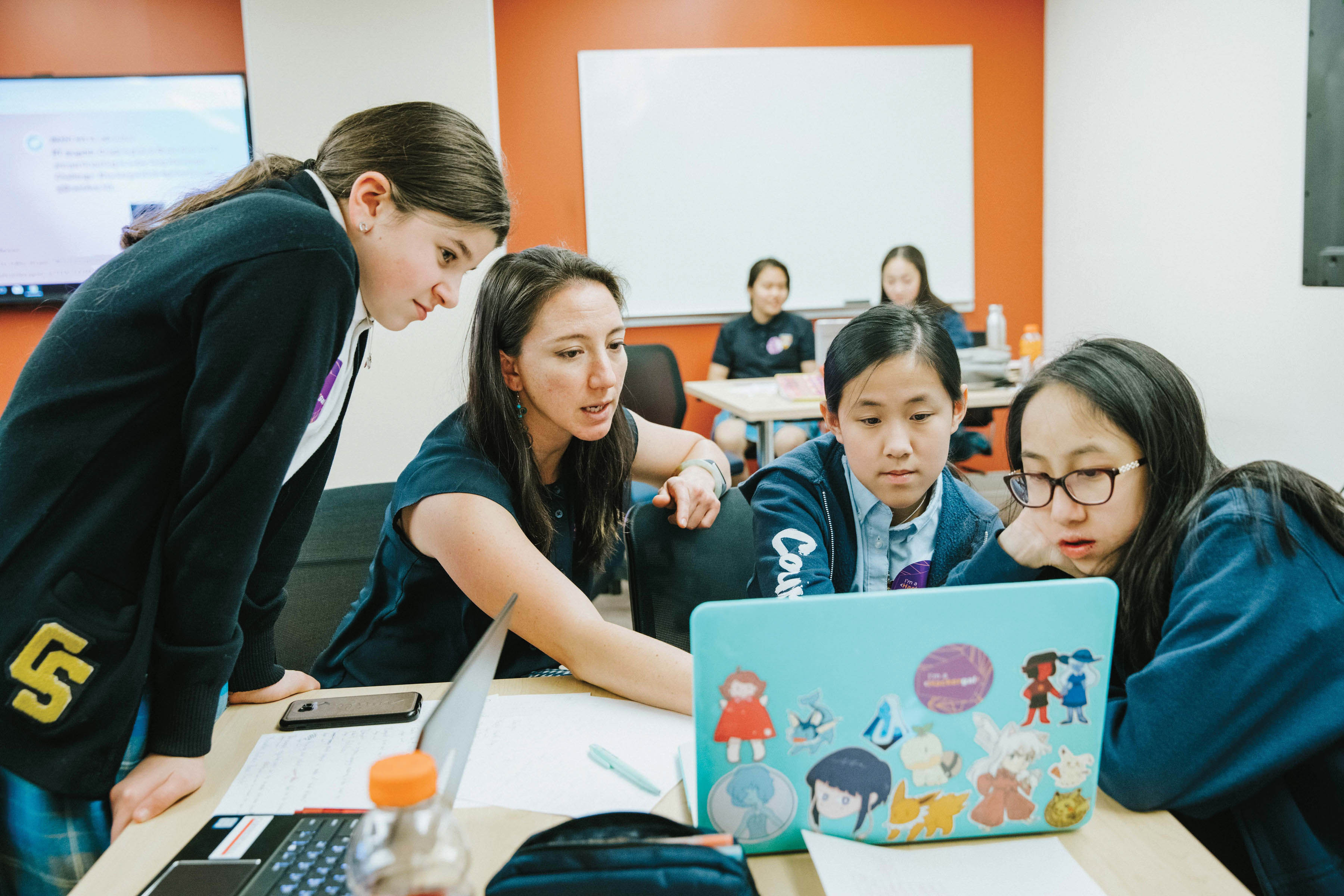Share this page
An Ontario Certified Teacher uses a boardwide approach to introduce girls to the possibilities of tech.
By Stefan Dubowski
Photo: Papercrane Creative

The Challenge: Help teachers find appropriate computer-coding activities for students. Help students go beyond the screen to understand technology.
The Solution: Have students and teachers participate in the Hackergal Hackathon.
Lessons Learned: As a student success pathways consultant with the Kawartha Pine Ridge District School Board in Peterborough, Ont., Jaime Nobes, OCT, was looking to help teachers boost their capacity to teach computer coding, since it's now part of the high school curriculum. And she wanted to help youngsters become more than just technology consumers. She wanted them to understand the mechanisms behind the software.
She discovered the Hackergal Hackathon, which seemed just the answer. Hackergal is a charity that introduces girls to technology as a career path and a creative outlet. The organization holds an annual "hackathon" for schools to participate in. It's a virtual event in which girls in Grades 6 to 9 code games and mini-websites focused on creating social impact, and is based on a surprise theme announced just a week before.
Nobes wasn't sure students would be interested. But she went ahead and promoted the hackathon anyway, sending messages to administrators, teachers and parents. "By the time I checked at lunchtime, up to 50 girls [had already signed up]…And over the weekend, it went up to 400."
Participants took to the Hackergal Hub, a website with instructions and activities to help them learn Lynx, a programming language. Nobes also set them up on Padlet, a collaboration tool, where students could ask and answer questions. Practise made a difference. "The girls were even at the point where they could problem solve for the other girls," Nobes says.
Then came the hackathon. The theme for June 2021: She Codes the Future. Participants developed digital activities and information boards about the environment, space travel, robotics and other topics over the course of a week. They shared their creations in the Hackergal online gallery, and on a Flipgrid, which Nobes set up.
Observations: Nobes says the event's popularity indicates the strong appetite for these activities. "Never in my wildest dreams would I have thought that more than 400 girls would have signed up."
Participants learned to code but what's more, they came away with stronger skills in key areas such as problem-solving and self-motivation. If they ran into trouble, it was up to them to find solutions either through research or by reaching out to other girls for help. They also practised perseverance, which was required to push through difficulties and complete their projects.
"It didn't take long for some of those students to surpass my ability," Nobes says. "And it really put the learners in roles where they can be successful and able to help and teach other people. That's empowering."
The College's professional advisory Use of Electronic Communication and Social Media — Updated guides members' professional judgment in the use of technology.